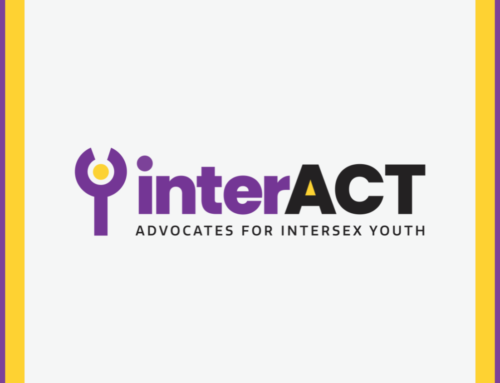Visibility, challenges and hope for DSD and Intersex affected communities worldwide.
United States, November 21, 2013:
The new German law allowing families whose babies’ sex is unclear because of genital difference to defer choosing a binary option on the birth certificate has been the subject of much criticism. While we share some concerns, we believe that the new law is an important step forward, because it shows that the German government is aware of the human rights abuses faced by intersex people and it is starting to take action.
This first effort may be a bit misdirected, because it does nothing about the most important human rights violation, specifically irreversible and nonconsensual genital surgery on children who have no idea of their future gender identity. However, we know the German government was trying to address that issue and we expect the law to continue to evolve. We welcome this effort.
It remains to be seen how the law will work out in practice — some activists are concerned it could increase pressure on parents to consent to unnecessary surgery, although the intention is to decrease pressure on families who previously had only a week to decide legal sex. Whatever language the law uses to describe the process for physicians to fill out birth certificates when gender is uncertain, we expect that process to evolve. The mechanisms for decision-making and enforcement remain unclear. However, we believe that this law, if implemented in a wise and compassionate manner, can create a space for families and clinicians to give thoughtful consideration to gender assignment in situations of genital difference. Leaving the birth certificate blank does not equate to raising a child without a gender. No one asks to see a birth certificate on the playground. Delaying affirmation of legal gender allows assignment of a provisional social gender that can easily be changed if the need becomes apparent.
From our experience working with hundreds of families whose children have variations of sex characteristics, we know that if there is less pressure to assign a permanent gender, there can be less pressure to perform “gender-confirming” surgery. The law provides an opportunity to substitute a reversible step- a delay in confirmation of legal gender – for the irreversible intervention of surgery. These parents, and their extended families and friends, will have a chance to love their special children as they are, with their difference. They will have time to join our community of families and learn from us how to parent in ways that are honest and accepting. When children and families are given a chance to gradually discover a child’s gender identity, many find that it becomes apparent before the child is of school age.
Publicity about the law has already raised society’s awareness of the difficult choices parents may feel forced to make when an intersex baby is born. As German society is educated about differences of sex development, teachers will work with families and children to decide issues such as which school restroom to use. An expectant “identity before assignment” approach will also support those adolescents who need to experience puberty before understanding their identity, which may now remain “X” indefinitely for legal purposes such as passport information. A law that promotes informed decision-making and social discourse produces an informed society and medical community that can support these families, and facilitates access to the kind of help they really do need, from peer support organizations and behavioral health providers.
***this statement only represents the positions of AISDSDSG and AIC.***
Arlene Baratz, MD, Mother of adult intersex children, AIS-DSD (Androgen Insensitivity Syndrome- Disorders of Sex Development) Parents Group moderator, Family and medical advisor to Advocates for Informed Choice, Accord Alliance, AIS-DSD Support Group.
Anne Tamar-Mattis, JD, Executive Director, Advocates for Informed Choice






